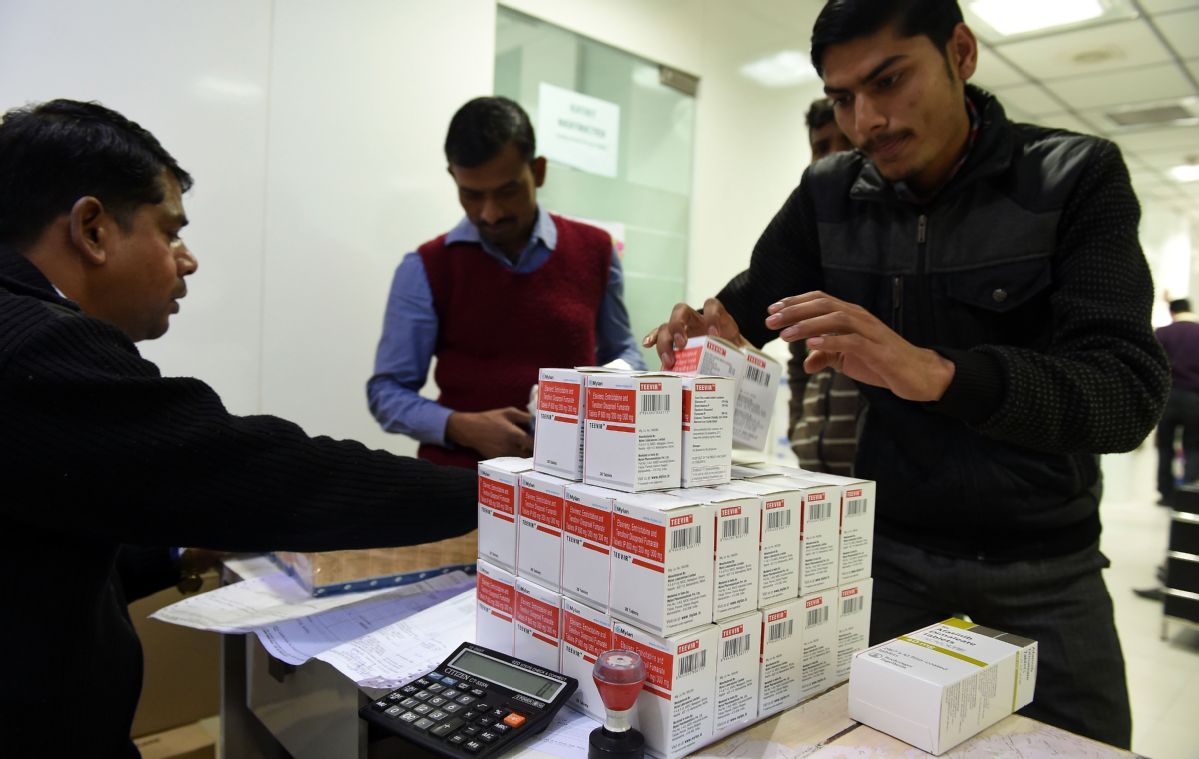Generic drugs from India set to shake up market


Since her mother-in-law was diagnosed with cervical cancer, Wang Yan and her husband have faced two heavy burdens: worry for their mother's health, and the 40,000 yuan ($6,000) bill each month for medicine.
However, relief may be on the way.
India is negotiating with the Chinese government about importing generic drugs from India, whose prices are far lower than the equivalent branded ones. According to one official, India is eager to see cheaper drugs on Chinese pharmacies' shelves as soon as possible.
"China is a potential market. We would like to take the opportunity to export as many generic drugs to China as possible," said Prashant Lokhande, business and economic counselor at the Indian embassy in Beijing.
"We are currently talking with the Chinese authorities about the registration of Indian generic drugs in China. Our medical products, which are already approved in the United States, Europe and Japan, should have a fast registration process in China.
"For the procurement system in China, we are requesting the Chinese government to give Indian drug companies access. We are very hopeful that Indian generic drugs will have a bigger market in China, at a more affordable price," he added.
A report from the India Brand Equity Foundation showed that production costs in India are 33 percent lower than that of the US, while the cost of labor is roughly half of that of Western countries. Therefore, generic drugs manufactured in India are often much cheaper than those produced in the West.
That has helped the Indian drug market explode in popularity. At present, India's drug production ranks as the third biggest in the world, and its pharmaceutical industry has grown at a compound annual rate of 17.5 percent over the past decade.
From April 2017 to March 2018, India's drug export volume reached $17.3 billion. It is estimated that by 2020, the volume will reach $55 billion-growth of around 16 percent a year.
Despite this, and the country sharing a land border with around 1.4 billion Chinese people, only 1 percent of India's medicine exports go to China.
"India is globally known for providing quality drugs at affordable prices and known as the pharmacy of the world. China should be a big market for India, with generic drugs being an important part of that. However, China currently only imports a total of $200 million of products a year from India," said Lokhande.
But now, some big manufacturers, such as Sun Pharmaceutical Industries, Lupin Ltd and Aurobindo Pharma Ltd, are striving to change that. The firms are looking to expand their presence in China, the world's second-largest pharmaceutical market after the United States.
"Pharmaceutical trade between China and India is showing sustained growth. Both sides have had good communication, promoting Indian drugs entering the Chinese market.
"It is believed the expansion and deepening of Sino-Indian pharmaceutical trade cooperation will further enhance the health and wellbeing of people from both countries. At the same time, favorable policies are creating convenience for Indian generic drugs to enter the Chinese market," said Foreign Ministry spokeswoman Hua Chunying, during a media briefing.
Last May, the National Medical Products Administration issued a document, looking to optimize the medicine registration and approval process. Two months later, it issued a guideline on overseas clinical trials, approving clinical trial data acquired overseas when innovative drugs are developed synchronously at home and abroad.
The introduction of the two policies is regarded as a symbol of further opening up the import market, and generic drugs from India are likely to be admitted.
Chen Qiaoshan, a medical analyst at Beijing-based market research consultancy Analysys, said: "Generic drugs from India are high-quality, and their introduction to China may influence the domestic drug market, whose prices are higher. For a certain type of drug, if there is no innovative drug in the field, and the original drug is expensive, the generic drug from India serves as a good replacement.
"Also, the introduction of Indian generic drugs may have a 'catfish effect' on domestic innovative drugs, which will push forward reform and innovation in the sector," she added.
Siva Sankar contributed to this story.




































